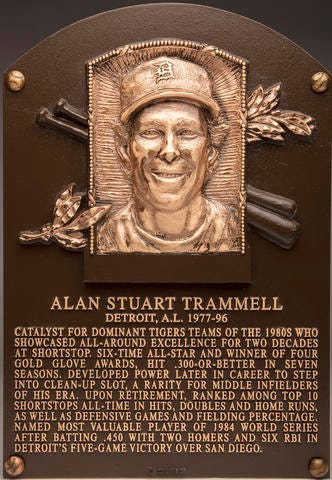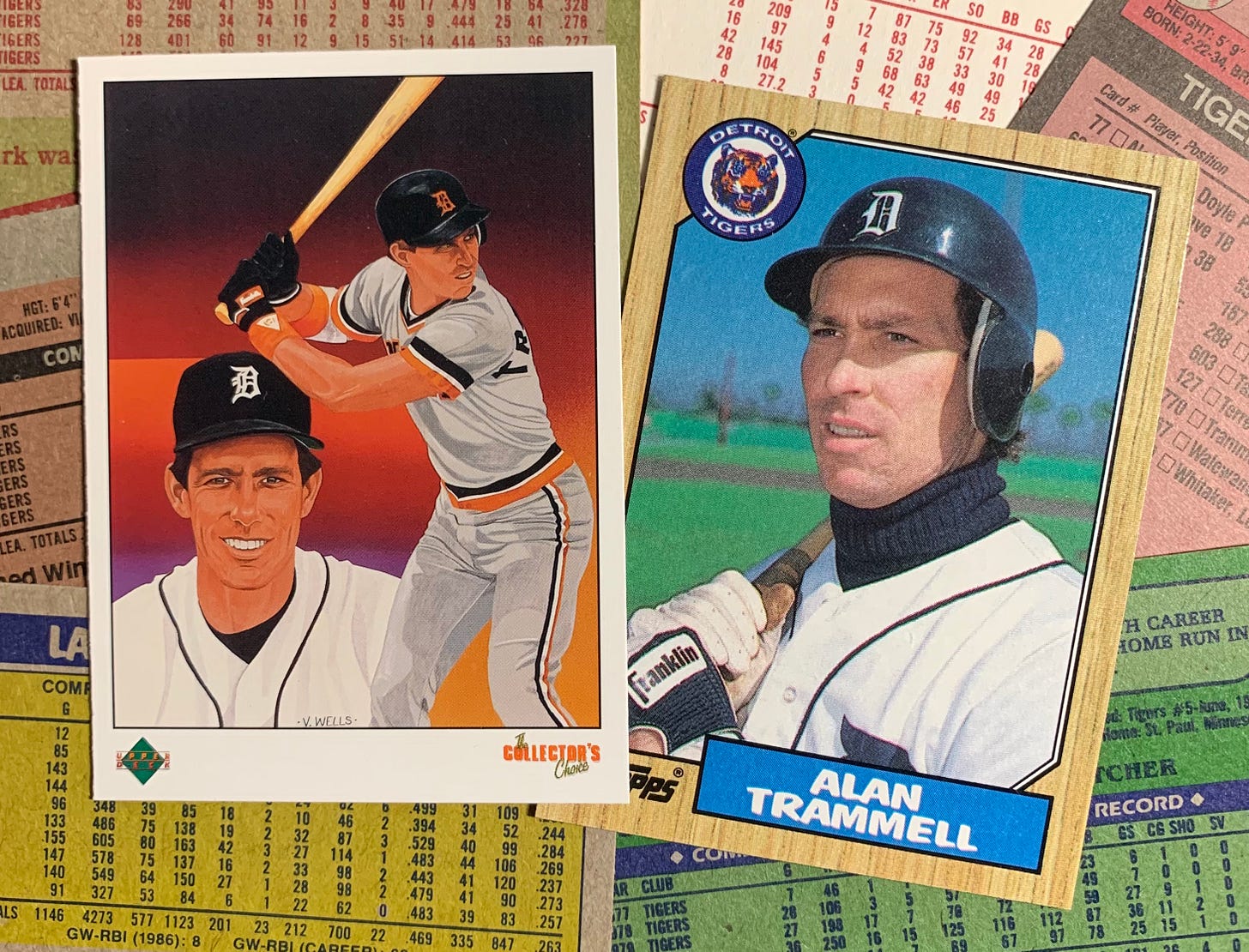Never Gets Old!
From Detroit to Cooperstown, Alan Trammell's legacy is celebrated
Welcome to Warning Track Power, a weekly newsletter of baseball stories and analysis grounded in front office and scouting experiences and the personalities encountered along the way.
After every win, there was the familiar refrain.
The generally taciturn bench coach would exclaim, “Never gets old!”
He was right. Of course, Alan Trammell was right.
The first time I ever spoke to him was in advance of the organizational meetings we were holding in Arizona prior to the 2011 season. I called to confirm the dates with him and ask if he’d speak about infield defense.
“Hello, Alan?” I said when he answered the phone. That was the first and last time I’ve ever called him Alan.
To everyone who knows him, he’s Tram — a wonderfully kind competitor, instructor and friend with a boundless commitment to the game of baseball.
In 2017, the Modern Era Committee righted a wrong perpetuated over 15 years by the Baseball Writers’ Association of America when the 16-member group comprised of Hall of Famers, executives, and media voted Alan Trammell into Cooperstown.
About an hour after getting the call, Trammell called his longtime friend Bob Cluck to share the good news.
Cluck, a San Diegan like Trammell, served as the Major League pitching coach for the Astros, A’s, and Tigers, during a professional baseball career that spanned more than 50 years.
“Jerry Coleman and I were on the front line of cheerleading,” Cluck says in reference to Trammell’s candidacy for enshrinement. “Every time I'd see Jerry, the first thing out of his mouth was, ‘When is Tram going to get in? I'm so tired of this!’”
Coleman, a member of six Yankees teams that went to the World Series from 1949-1957, shared the fact that he had seen Pee Wee Reese, Phil Rizzuto, and Ozzie Smith play, and that Trammell was a better all-around player than all of them.
Tram entered the 1996 season needing only 13 RBIs to reach 1,000. It was a difficult final season for the 1976 second-round pick who had debuted in the big leagues at the age of 19.
Wouldn’t you know it, Trammell was sitting on 999 RBIs when the Tigers rolled into Oakland to play the A’s.
On June 25, 1996, Cluck was in the home dugout as pitching coach for the Athletics, while his longtime friend was penciled in at shortstop and batting ninth for the visiting Tigers.
“He came up in the 2nd inning,” Cluck remembers, “and he hit a nice hard groundball through the 5.5 hole into left field. I celebrated and [manager Art] Howe looked at me and asked, ‘What, are you cheering for him?’ I said, ‘Hell yes.’”
When Cluck thinks about Tram, though, it’s not about the run production or Gold Gloves. It’s about Detroit.
For three years, Cluck had a first-hand look at the relationship between his friend and the Tigers organization. In October 2002, Trammell was named manager of the Tigers, and he brought Cluck on as pitching coach.
“When we got to Detroit in 2003, it didn't take me long to see that the Old English D was everything to him,” Cluck says. “To me, it was another gig. I was appreciative of being in the big leagues obviously, but it was another team for me… It wasn't life or death for me, but for him it was.
“The Old English D was his church, and it still is today.”
For that reason alone, it’s wonderful for fans of the game to know that Tram has a lifetime contract with the Tigers. And as Cluck describes it, “he’s working like he’s trying to get a promotion.”
That work ethic and humility is not at all surprising. Entering the final weekend of the 2014 regular season, the Diamondbacks — with Tony La Russa at the helm of baseball operations — announced that manager Kirk Gibson and bench coach Alan Trammell were being relieved of their duties.
Gibson no longer owed the organization anything, and he left before that Friday’s game. Tram — believing that he had a job to finish and a commitment to everyone in the clubhouse — stayed and managed the final three games of the season.
It’s Tram’s integrity and devotion to the game — and to Detroit — that makes his ouster after the 2005 season with the Tigers still difficult for Cluck to get over years later.
“When he took me to Detroit, we had a total rebuild,” Cluck says about the 2003 team that went 43-119. “He handled it like a champ.”
That kind of losing can wear down even the most resilient competitors.
“Every time I got to feeling sorry for myself, I'd watch the way he acted. We've got another chance tomorrow. It was always about tomorrow. We would get our asses kicked, and I’d be on my third beer watching video of the hitters coming to town the next day” — the Tigers didn’t have an advance scout — “and he’d come in and start watching video and ask, ‘Well, what do we got tomorrow?’”
Cluck admires how Tram could turn the page on a loss. “I was 60 years old and learning that from him.”
In less than one week, Tram and his fellow Hall of Famers return to the quaint village in Otsego County for this year’s induction ceremony. For if not Detroit, it’s in Cooperstown where Tram belongs.
Thank you for reading Warning Track Power. Subscribe now to have WTP delivered to your inbox every Thursday.


